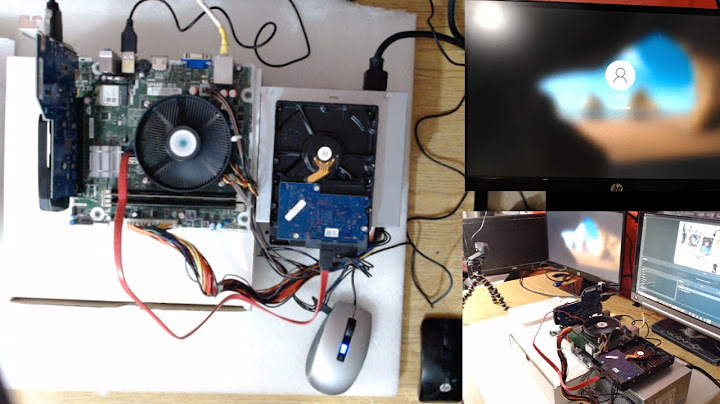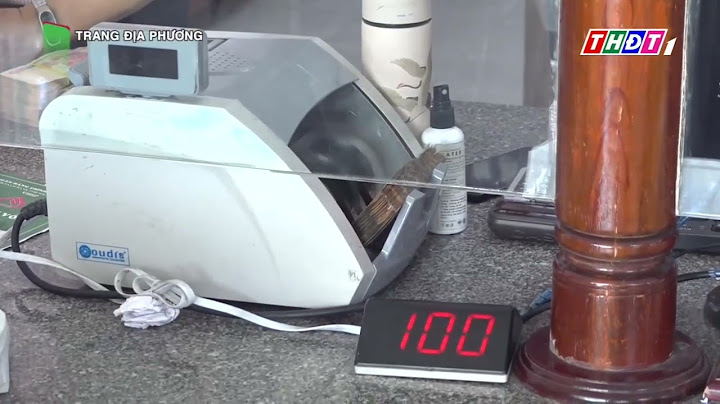You have to tell your insolvency practitioner if your personal circumstances change. It’s a breach of your agreement if you don’t tell them when things change. For example, you should tell them if: Show
If you’ve had a change in circumstances and you’re not sure whether to tell your insolvency practitioner, it’s safer to contact them. If you can no longer make paymentsIf you can no longer make the payments into your IVA, you should tell your insolvency practitioner straight away. You’ll usually be able to make changes to your IVA if your financial circumstances change. Find out what to do if you're struggling to pay your IVA. If you’re made redundant during your IVAYou'll need to tell your insolvency practitioner you're being made redundant and how much redundancy money you're getting. You should tell them within 2 weeks of your redundancy being confirmed. You'll get to keep 6 months’ worth of your take-home pay from your redundancy money. If you have any money left over, you’ll have to put that towards your IVA. If you don't tell your insolvency practitioner you’ve been made redundant, you could be breaking your IVA arrangement. If your income goes upYou should tell your insolvency practitioner immediately. For example, you might have started a new job or got some inheritance money. If you don’t tell your insolvency practitioner you'll have broken your IVA agreement. Your insolvency practitioner will be able to find out about your finances through the annual review they carry out. You might have to increase your payments into your IVA. Your IVA might contain a windfall clause. A windfall is money unexpectedly received during an IVA. For example, winning the lottery, an inheritance or large bonus payment. If your IVA has a windfall clause, you’ll have to pay the money into your IVA. If you don’t tell your insolvency practitioner about your change in financial circumstances you could be breaking your IVA arrangement. If you start taking money from your pensionThis will count as income and you should tell your insolvency practitioner. You might have to pay some of it into your IVA. If you have a 'defined contribution pension' and turn 55 years old during your IVA, you could cash in some of your pension to pay into your IVA. A ‘defined contribution pension’ is based on how much has been paid into your pension pot, not your salary near retirement. Your IVA might already include an agreement that you have to pay some of this into your IVA. This is something that should have been discussed with you and agreed before the start of your IVA. You should get advice from an independent financial adviser before agreeing to use your pension savings. You can find out about getting financial advice. If you get a bonus or commissionIf your IVA was drawn up under the IVA Protocol, it will include a term which says you only need to report any overtime bonus or commission where this is more than 10% of your normal take home pay. You must tell your insolvency practitioner about the extra money within 14 days of getting it. You'll only need to pay some of your bonus into your IVA. If you realise you forgot to include a debt in your IVAYou must tell your insolvency practitioner about the debt straight away. The creditors of your debts you’d forgotten about are called ‘unknown creditors’. Your IVA is legally binding on any of your unknown creditors that are discovered later on. This means they must stick to it and they can’t take any other action against you to get their debt back. Some of your monthly repayment will go to them. Your IVA must include terms and conditions for how any unknown creditors will be paid if they are discovered later on. Unknown creditors are entitled to receive some of your monthly payments, even if you don't discover them until after your IVA has finished. If your unknown creditors aren't happy with the arrangement you've made, they can apply to the court to challenge your IVA. They have 28 days from the date they find out about your IVA to challenge it. If you don’t think you owe the debt, you should tell your insolvency practitioner this and that you want to challenge it. Help us improve support for people in debtYou can help us persuade the government to give people the debt support they need. Take an anonymous survey to help us learn what people need. If your IVA is based on making 60 monthly payments, creditors may request to increase the amount you have to pay each month, if they consider your monthly expenses to be overstated or your income understated or if any of your expenses are set at an exorbitant level in your proposal. For example, if you claim £200 per month in smoking expenses in your proposal, lenders may deem this excessive and request to cut this back to about £60 per month and seek to increase your payments by the difference. If you want your IVA to be accepted, you may have to agree to such an uplift in your payments which clearly requires you to cut back on your smoking. This type of request is known as a known as a modification. IVA Proposal Modifications In an annual review, if your financial circumstances change for the better, then creditors would expect your monthly payments to them to increase. For example, you may be promoted at work, secure a better job, or obtain additional benefits from one year to the next. This would increase your household income. Or you may have been able to reduce your household living expenses. Types of modificationOne standard modification reads as follows: ‘Where net income has increased, including any routine overtime, the debtor shall increase contributions by 50% of the net surplus, after taking into account costs of living, commencing in the month after review.’ So what does this mean? Assuming you get a pay increase and your regular take-home pay increases by £500 per month, while at the same time your household costs increase by £150 per month, then your net surplus income would have increased by £350 per month. Creditors would expect you to contribute half of this net additional amount of £175 to your IVA every month. Your household would also enjoy an improvement in its standard of living to the extent of £175 per month. It is your IVA supervisor’s job to make sure that the payments are increased accordingly. About four to six weeks before your annual review is due, your supervisor will send you an income and expenditure form, showing the figures last used in the previous year. You will be asked to read over and update any new income and expense figures. When you have completed the form, you need to return it with a copy of your most recent P60 and copies of your recent pay slips. Your supervisor will review these figures, calculate any increases in your monthly contributions and agree these figures with you. Your annual review is then circulated to creditors showing any changes. What about overtime, bonus or commission that earned during the previous year?One standard modification reads as follows: ‘The debtor shall report any overtime, bonus, commission or similar to the supervisor if not included in the original surplus calculation and where the sum exceeds 10% of the debtor’s normal take-home pay. Disclosure to the supervisor will be made within fourteen days of receipt and 50% of the amount, over and above the 10%, shall then be paid to the supervisor within 14 days of the disclosure. Failure to disclose any exceptional overtime, bonus, commission or similar by the debtor will be considered a breach of the arrangement and the supervisor shall notify the creditors in the next annual report with proposals for how the breach is to be rectified.’ Below is an example that illustrates how this modification works: Let’s suppose that your normal take-home pay is £2,000 per month and you receive a one-off bonus of say £500 net. Then that month’s take-home pay would have increased by 25%. The first £200 of your bonus, 10% of normal take-home pay, would not be touched and 50% of the balance of your bonus would have to be contributed to your IVA. So you would have to contribute a total of £150 extra to your IVA for that month only and would be allowed to keep the remainder of your bonus amounting to £350. Making such increased monthly contributions to your IVA does not reduce the term of your IVA. You will still have to keep on paying for sixty months. It just means that you will be repaying a greater percentage of your debts to your creditors and they will receive a greater dividend than originally estimated when you made your initial IVA proposal. Supervisors have a duty to ensure that payments to the IVA are made in accordance with the agreed terms and conditions as accepted at the meeting of creditors, including modifications. What documents do I need for IVA?You'll need to give your insolvency practitioner details of your debts and how much money you can pay towards your debts. For example: proof of your income, such as payslips, benefits letters or recent bank statements. proof of savings such as bank statements. What are the criteria for IVA?A reasonably stable ongoing income from Employment and or stable benefits. A sustainable level of expenses that maintain a reasonable standard of living for you. Not spending excessively and are living within reasonable means. How do I get accepted for IVA?How do I get approved for an IVA? To be approved, 75% of your creditors must agree to your proposal via a vote. Once it's approved, you're protected against legal action to recover the debts included. IVAs are available in England, Wales and Northern Ireland. Does IVA monitor your bank?Do IVA Check Your Bank Account Regularly? Yes, they do. Your IP will conduct annual reviews to check your income, expenditures, and overall financial situation. If there's a significant change in your circumstances, they might adjust your repayment plan. |




















